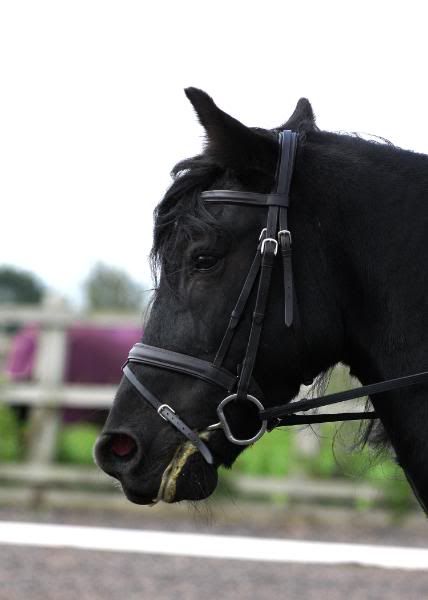Post by Debbie on Dec 26, 2007 23:18:21 GMT -1
I came across this in my January 2008 issue of "Equus'' magazine. I thought it was so interesting that I'd put it on here. Its verbatim, and is located on page 7, "Equus" 364
A new study from the Netherlands not only confirms the strong link between tapeworms and certain types of colic, but also suggests that blood tests are more accurate than fecal samples in detecting infestations.
Using nearly 300 horses, University of Utrecht researches set out to do two things: connect tapeworms (Anoplocephala perfoliata) with colic incidence and determine whether a blood test for antibodies against the parasite can be used to diagnose infestations.
First the researchers compared blood and fecal samples from 139 control horses with no history of colic. Then they conducted postmortem examinations on 32 horses put down for different causes, collecting blood samples as well as examining the contents of the cecum for tapeworms.
The data showed that the horses with colic had significantly higher levels of antibodies against A. perfoliata than did their healthy counterparts. In addition, all seven deceased horses found to be carrying tapeworms had elevated antibody levels, while those without the parasite did not.
Surprisingly, none of the fecal samples in the study revealed any tapeworm eggs. "Fecal sampling is really not sensitive, " says Maarten Boswinkel, DVM. "It is not a convincing diagnostic tool. Serum testing would be a practical and representative tool for an individual horse as well as herd control of tapeworms."
Reference: "Correlation between colic and antibody levels against Anoplocephala perfoliata in horses in the Netherlands," Tijdschrift voor Diergeneeskunde, July 2007
I'm never keen on how science puts forth low numbers for their correlations, but this one I did find interesting in that the bloodwork showed the elevated antibodies, while the fecal exams came back negative. It would seem that routine bloodwork could come back as a better window on the parasite controls than relying solely on fecal exams.
A new study from the Netherlands not only confirms the strong link between tapeworms and certain types of colic, but also suggests that blood tests are more accurate than fecal samples in detecting infestations.
Using nearly 300 horses, University of Utrecht researches set out to do two things: connect tapeworms (Anoplocephala perfoliata) with colic incidence and determine whether a blood test for antibodies against the parasite can be used to diagnose infestations.
First the researchers compared blood and fecal samples from 139 control horses with no history of colic. Then they conducted postmortem examinations on 32 horses put down for different causes, collecting blood samples as well as examining the contents of the cecum for tapeworms.
The data showed that the horses with colic had significantly higher levels of antibodies against A. perfoliata than did their healthy counterparts. In addition, all seven deceased horses found to be carrying tapeworms had elevated antibody levels, while those without the parasite did not.
Surprisingly, none of the fecal samples in the study revealed any tapeworm eggs. "Fecal sampling is really not sensitive, " says Maarten Boswinkel, DVM. "It is not a convincing diagnostic tool. Serum testing would be a practical and representative tool for an individual horse as well as herd control of tapeworms."
Reference: "Correlation between colic and antibody levels against Anoplocephala perfoliata in horses in the Netherlands," Tijdschrift voor Diergeneeskunde, July 2007
I'm never keen on how science puts forth low numbers for their correlations, but this one I did find interesting in that the bloodwork showed the elevated antibodies, while the fecal exams came back negative. It would seem that routine bloodwork could come back as a better window on the parasite controls than relying solely on fecal exams.




 But only when you get the chance.
But only when you get the chance.